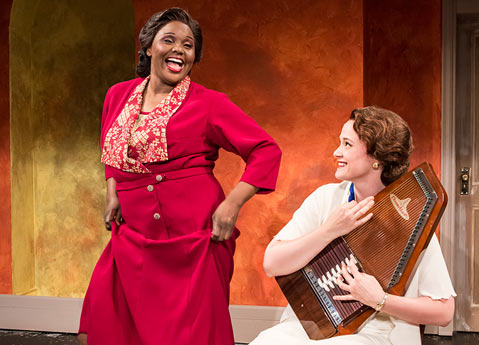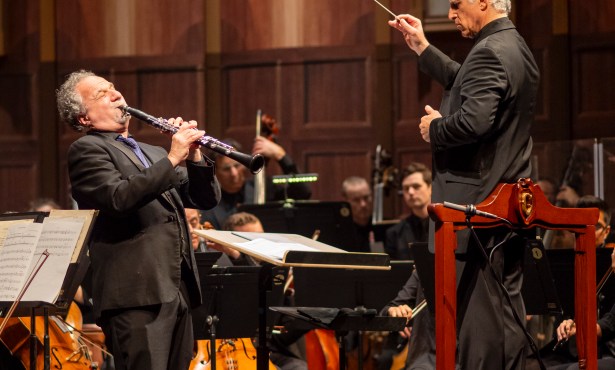Three Reasons to See Black Pearl Sings!
Ensemble Theatre Company’s Latest Play Traces Black Experience in Song

In the 1930s, academic collectors of folklore were intrepid adventurers, sacrificing comfort and even safety in pursuit of living embodiments of the roots of American culture. Among the most radical and fruitful locations they chose were the prisons of the South, where, primarily due to the inmates’ lack of access to such things as the radio and the phonograph, authentic examples of 19th-century slave songs and spirituals could still be found. In Black Pearl Sings! — the final production of the Ensemble Theatre Company’s season — the dynamics of one of these encounters is reimagined in a show that, while not a true musical, nevertheless gets its emotional heart from a pair of a capella singing performances. As Susannah, the Ivy League–educated musicologist who travels to a Texas prison to make field recordings, Jessica Wortham will wield a zither and play and sing some Irish-tinged Appalachian music to draw out her subject. But the larger part of the a capella performances that power this evening will come from her costar, Jannie Jones, who plays Pearl, the convict who holds the secret to Wortham’s quest and the performer who will mesmerize audiences both in and out of prison.
I spoke with playwright Frank Higgins last week by phone from his home in Kansas City, and he had much to say about his drama with music, which has become one of the most frequently produced plays in America during the last two years. Below, you’ll find three of Higgins’s reasons to head out to Ensemble’s Alhecama Theatre (914 Santa Barbara St.) between Thursday, June 14, and Sunday, July 1, to see Black Pearl Sings! Call 965-5400 or visit ensembletheatre.com for info.
1. Pearl Power: “The women in the audience tend to respond very emotionally to the journey of Pearl,” Higgins said, “because she is a black woman and a prisoner in a time well before the advent of modern feminism. She goes from an opening scene where she is literally shackled to a ball and chain, to a place — Greenwich Village — in the second act where she is accepted for who she is, where she has discovered that she has some power, and where she can succeed.”
2. Roots Music: “All the songs are authentic,” said Higgins. “Everything was meticulously researched, but then we also rehearse in such a way that the performers really feel the music, and that insures that each production of the show is unique.”
3. Real People: “I wrote this play to acknowledge something important about music,” said Higgins, “which is that its history is not just made by the kings and queens — the famous names — there’s also a whole world of music that’s made by common people singing in their daily lives.”



